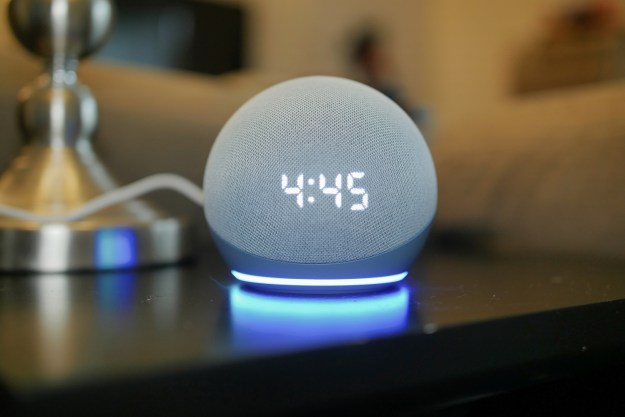The Sonos One and Google Nest Audio are two of the best smart speakers of 2023. Both can pump out impressive sound, respond to a wide variety of voice commands, and easily sync up with the rest of your smart home. But with the Sonos One costing more than $200 and the Google Nest Audio clocking in at just $100, you might be wondering if the Sonos One is truly worth your money — or if you’d be better off saving $100 and opting for the cheaper Google product.
Before picking up either smart speaker, here’s a closer look at the Sonos One and Google Nest Audio.
Pricing and availability

As mentioned above, the Sonos One costs $219, but can often be found on sale for under $200. It’s available in either black or white. Meanwhile, the Google Nest Audio costs $100 and rarely sees a big discount. Available colors include chalk, charcoal, sage, sand, and sky. Thanks to its lower price tag and a wide array of colors, the Google Nest Audio is the clear winner of this round.
Winner: Google Nest Audio
Design
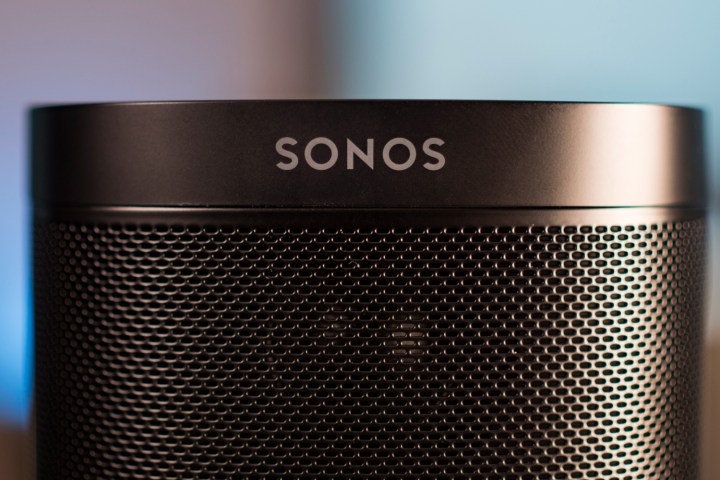
The Sonos One doesn’t do anything too fancy with its design, as it’s largely just a rounded rectangle with a few touch controls. The majority of its body is filled with small perforations, the top houses all its controls (including a way to mute the microphone, adjust the volume, or change tracks), and the back is home to its wired connection and sync button. It’s a good-looking device, and it’s minimal enough to fit in with most home décor.
The Google Nest Audio is wrapped in colored fabric and is much more attention-grabbing than the Sonos One. Its shape is a bit more abstract, although most people would describe it as a slim, rounded rectangle. It’s a good-looking product by most measures, although the lack of physical buttons means you won’t have quite as much control as you do with the Sonos One.
Since the Sonos One offers more on-unit functionality and the Google Nest Audio features a bolder design, this round is a tie.
Winner: Tie
Speakers and sound
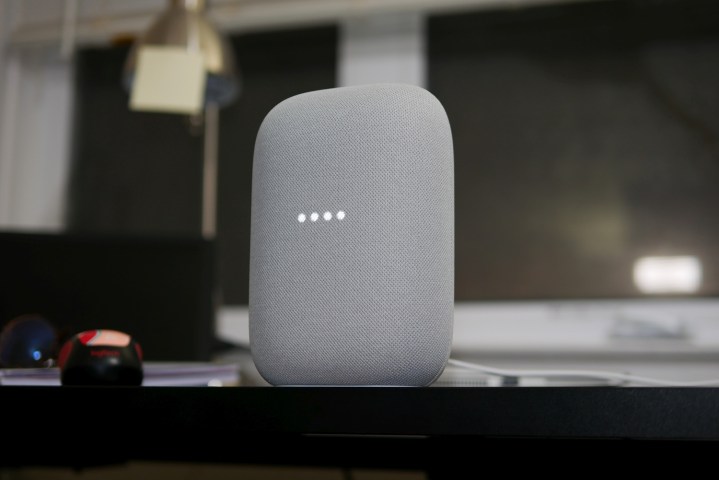
When it comes to audio quality, the Sonos One is the clear winner. It’s technical specs include two Class-D digital amplifiers, one tweeter, a midwoofer, a far-field microphone array, and adjustable EQ through the Sonos app. It also benefits from Trueplay — a feature that lets it adjust its performance based on your room’s acoustics.
The Google Nest Audio is no slouch (thanks to a 75mm woofer, 19mm tweeter, and three far-field microphones), but it simply can’t keep up with the Sonos One. Considering the Sonos costs twice as much, that’s to be expected.
Both products sound great, but anyone with a discerning ear will appreciate the Sonos One.
Winner: Sonos One
Smart home connectivity
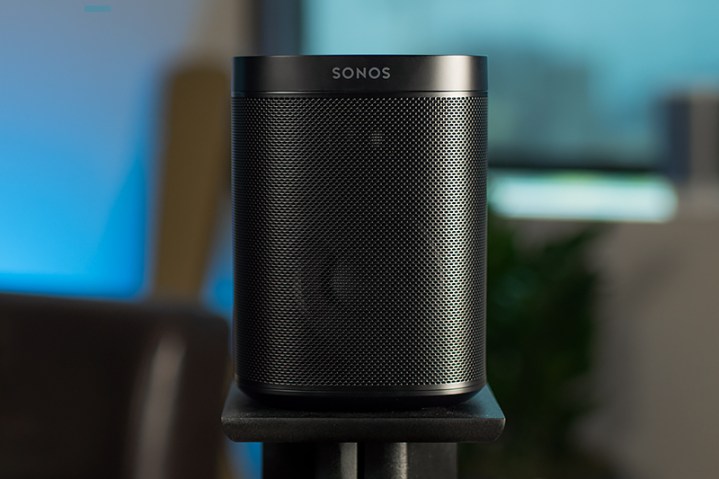
The Sonos One supports both Amazon Alexa and Google Assistant, while the Nest Audio only supports Google Assistant. However, it’s important to note that the Nest Audio is now a Matter-enabled device, which means it can play nicely with devices from other ecosystems that also support Matter. This is a list that continues to grow every month — although it’s still not the game-changer that it’s expected to be later this year.
For now, Sonos One comes out ahead thanks to native support for both Amazon and Google ecosystems.
Winner: Sonos One
Which should you buy?
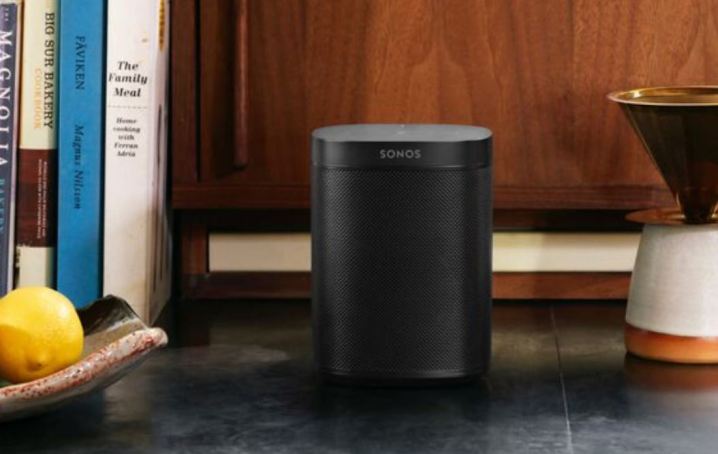
As is often the case with high-profile products from reputable manufacturers, it’s hard to go wrong with either product. If you’re on a budget and don’t mind using Google Assistant, then we’d strongly recommend sticking with the cheaper Google Nest Audio. It sounds great, supports Matter, and is available in a wide variety of colors.
On the other hand, anyone that wants premium audio in their home should give first consideration to the Sonos One. It’s also a great option for smart homes with other Amazon products, as native Alexa support is a huge perk. As long as the price doesn’t scare you away, the Sonos One is an excellent option for most shoppers.
Editors' Recommendations
- The best alarm clocks
- The 6 best smart home products that support Matter
- The best outdoor security cameras for 2023
- The best smart locks for 2023
- The 10 best smart home products not made by Google or Amazon (or their subsidiaries)






